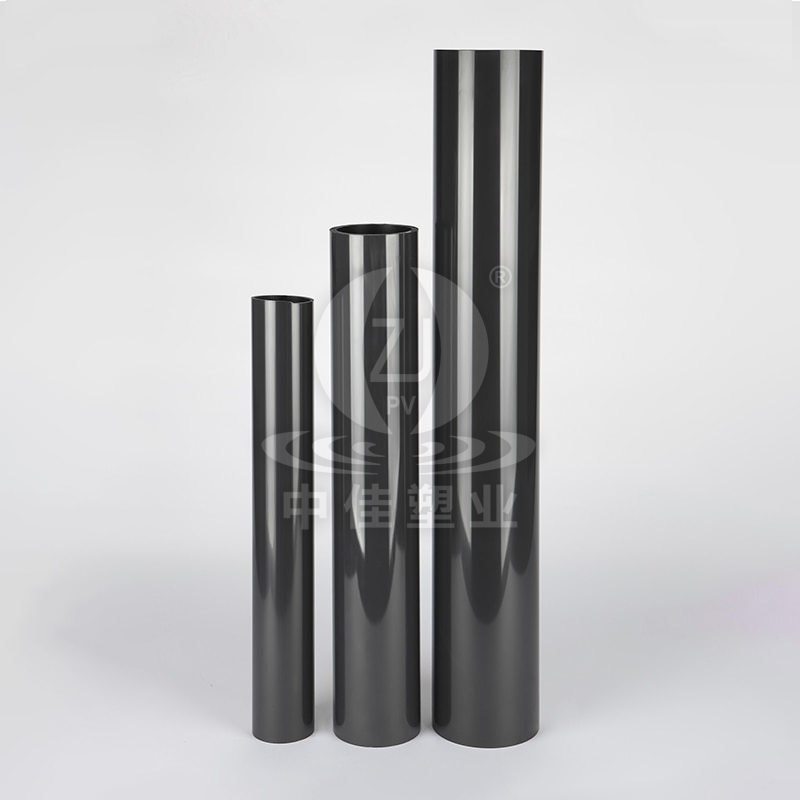

PVC-U plastic pipes are widely regarded as a highly durable and cost-effective solution for a variety of piping applications. Known for their rigidity, strength, and resilience, PVC-U plastic pipes have found their place in industries ranging from plumbing to chemical processing. However, one of the most critical factors in assessing their suitability for specific applications is their resistance to chemical exposure, especially when confronted with harsh acids, bases, or other aggressive substances.
The Chemical Composition of PVC-U and Its Implications
PVC-U is a thermoplastic polymer composed of chlorine and ethylene derived from petroleum products. The material's unplasticized form is what imparts its characteristic hardness and structural integrity. This molecular composition grants PVC-U plastic pipes inherent resistance to corrosion, a property that makes them particularly valuable in environments where metal pipes might fail under similar conditions. However, despite its impressive resilience, PVC-U is not impervious to all chemicals. Its interactions with various acids, bases, and solvents depend largely on the specific chemical in question, the concentration levels, and the duration of exposure.
Resistance to Acids
PVC-U plastic pipes exhibit a generally favorable resistance to a wide range of acidic substances, making them suitable for environments where exposure to weak to moderate acids is anticipated. Substances such as acetic acid, hydrochloric acid, and sulfuric acid—common in industrial applications—tend to have a minimal impact on PVC-U at low concentrations. This is primarily due to the stable molecular structure of PVC, which resists degradation from these acids under normal conditions.

However, the resistance of PVC-U to strong acids is limited. Highly concentrated or highly corrosive acids, such as concentrated sulfuric acid or hydrofluoric acid, can cause a slow but progressive deterioration of the polymer over time. In such instances, the plastic may experience cracking or softening, ultimately compromising the pipe's structural integrity. As a result, careful consideration must be given to the specific type and concentration of acid when designing systems that involve PVC-U plastic pipes.
Resistance to Bases
When it comes to bases, PVC-U demonstrates a superior level of resistance, particularly in neutral to moderately alkaline environments. Sodium hydroxide (NaOH), potassium hydroxide (KOH), and other common bases have minimal to no impact on PVC-U plastic pipes at typical concentrations. This makes PVC-U a highly effective choice for transporting alkaline solutions in chemical plants, wastewater systems, and agricultural applications.
Nevertheless, prolonged exposure to extremely high pH levels, such as those found in concentrated caustic soda solutions, may degrade PVC-U over time. The material can undergo swelling or softening, which can eventually lead to failure if exposed long enough. While PVC-U is generally more resilient to bases than to acids, it is still essential to monitor the pH levels and ensure that the pipes are used within recommended limits.
Temperature Considerations
Temperature plays a pivotal role in the chemical resistance of PVC-U plastic pipes. High temperatures can exacerbate the effects of chemical exposure, accelerating the degradation of the polymer. As the temperature increases, the molecular structure of PVC-U becomes more susceptible to attack by both acids and bases. For this reason, it is important to consider not only the chemical composition of the fluids but also the temperature at which they are transported through PVC-U plastic pipes. Elevated temperatures can lower the overall resistance of PVC-U to chemical exposure, potentially reducing its lifespan and effectiveness in aggressive environments.
Mitigating Risks and Enhancing Durability
To optimize the performance of PVC-U plastic pipes in chemically challenging environments, several best practices can be employed. First, regular maintenance and inspection routines are essential to identify signs of degradation or wear. Additionally, coating or lining the interior of the pipes with protective layers can offer an extra barrier against aggressive chemicals, further extending the lifespan of the piping system. In highly demanding applications, choosing a higher-grade PVC-U variant or considering alternative materials may be prudent to ensure longevity and reliability.
PVC-U plastic pipes offer a commendable degree of resistance to a variety of chemical exposures, particularly weak acids, bases, and many industrial chemicals. Their ability to withstand corrosion and degradation under normal conditions makes them an ideal choice for many applications. However, for situations involving concentrated or highly corrosive acids or bases, or when exposed to extreme temperatures, alternative materials or protective measures may be necessary. Understanding the chemical compatibility of PVC-U is crucial for ensuring the reliability, safety, and longevity of any piping system, particularly in industries where chemical handling is a daily concern.